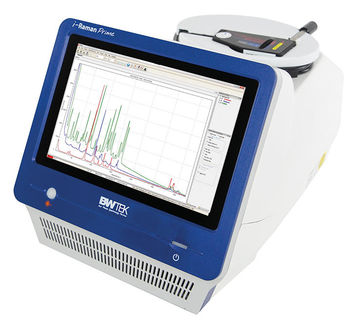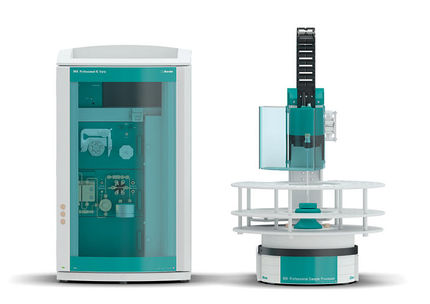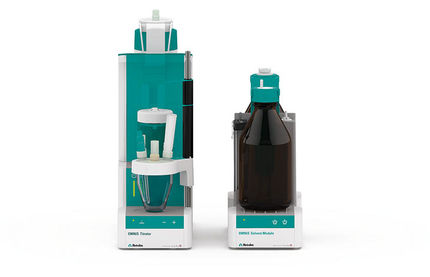To use all functions of this page, please activate cookies in your browser.
my.chemeurope.com
With an accout for my.chemeurope.com you can always see everything at a glance – and you can configure your own website and individual newsletter.
- My watch list
- My saved searches
- My saved topics
- My newsletter
Thermo mechanical fatigueThermo Mechanical Fatigue (TMF) is a variation of mechanical fatigue of materials where heating and cooling cycles are applied to a test material additional to a mechanical cyclic loading. The temperature cycles have - in most cases - the same frequency as the loading cycles, but have different phase shifts. Product highlightIf the phase shift is δ=0 the TMF tests are called in-phase tests, i. e. a tensile force is applied to the specimen while heating is done. If the phase shift is δ=180° the TMF test are called out-of-phase tests, i. e. the sample is cooled while in tension. For special testing parameters the phase shift can be applied between 360° > δ > 0, to fit the real requirements for the tested material in later application fields. ApplicationTMF testing is mainly done, to determine the total lifetime of technical components (e. g. turbine blades of aeroplane engines (jet engines) and gas turbines) previous to the technical implementation of that part. The material is tested with parameters (i. e. given temperature range, given maximum forces or stresses, cooling rates, phase shifts, etc.) that resemble the later usage profile of that material. So it is made sure, that the material can withstand the later technical requirements. The TMF test results are used (among other test results) to determine the total lifetime of a part as well as maintenance intervals for aeroplanes. Comparison of TMF testsTMF tests need to be done, because the results cannot be predicted from isothermal mechanical fatigue tests. Many materials undergo a recovery process at high temperatures, and some material coatings have a ductile to brittle transition in the temperature range, that affect the total lifetime of a sample a lot. TMF test results cannot be compared with other TMF results either, if one of the testing parameter differs, like e. g. temperature range, cooling rate, applied forces or stresses, phase shift. |
| This article is licensed under the GNU Free Documentation License. It uses material from the Wikipedia article "Thermo_mechanical_fatigue". A list of authors is available in Wikipedia. |







